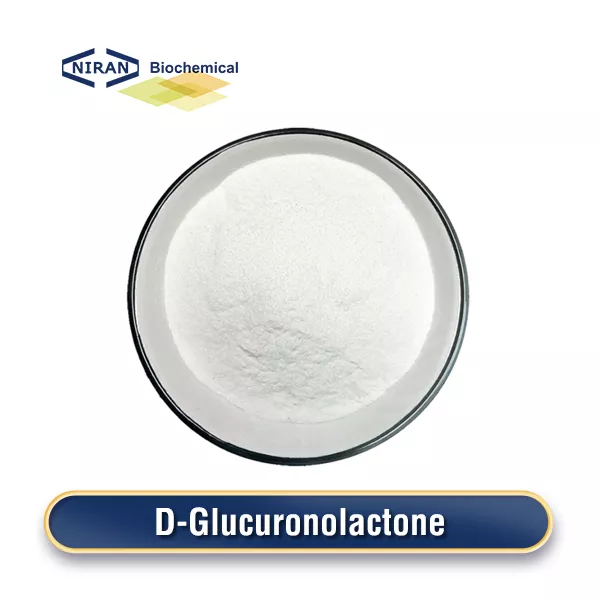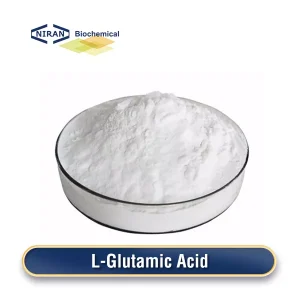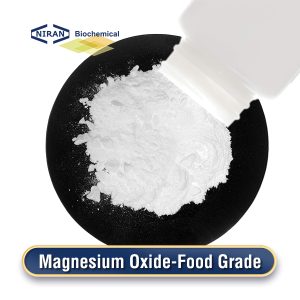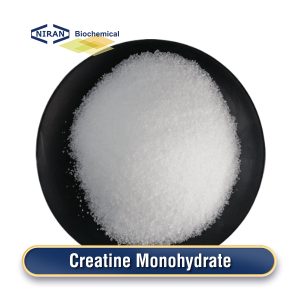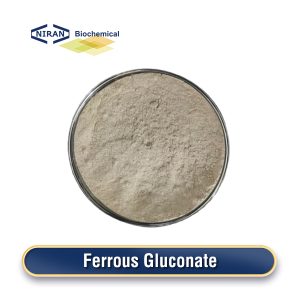Niran Biochemical
YOUR RELIABLE FOOD INGREDIENTS
Send Inquiry
Home » Products » Nutrition Enhancers » D-Glucuronolactone
D-Glucuronolactone
- CAS: 32449-92-6
- Chemical Formula: C6H8O6
- Certification: KOSHER, ISO, HALAL, FSSC22000, BRC, etc.
- MOQ: 1000KG
- Shelf Life: 2 Years
Inquire Product
Product Description
What Is D-Glucuronolactone?
D-Glucuronolactone is an organic compound, a glucose metabolite produced in the human liver, and an important component of connective tissue. It looks like white powder and dissolves easily in water, methanol, and, to a lesser extent, ethanol. Food, medicine, and other industries use it extensively.
The mainstream preparation process of D-Glucuronolactone is the glucose oxidation method, which oxidizes glucose to generate glucuronic acid, and then cyclizes it to form D-glucuronolactone.
The second is the acetic acid method, which uses acetic acid as a reaction reagent to react with glucose to generate D-glucuronic acid acetate, which is then lactonized to obtain D-glucuronolactone.
Recommended Dosage:
| Food name | Maximum usage(g/kg) |
| Energy Drinks | 2-3 g/kg |
| Sport Drinks | 1-2 g/kg |
| Fruit Juices | 0.5-1 g/kg |
| Granola Bars | 1-2 g/kg |
| Snack Bars | 1-2 g/kg |
| Chewing Gum | 0.5-1 g/kg |
| Jellies | 0.5-1 g/kg |
| Ice Cream | 0.5-1 g/kg |
| Baked Goods | 0.2-0.5 g/kg |
| Biscuits | 0.2-0.5 g/kg |
| Confectionery | 0.5-1 g/kg |
| Salad Dressings | 0.2-0.5 g/kg |
| Sauces and Condiments | 0.2-0.5 g/kg |
D-Glucuronolactone Has A Wide Range Of Uses
- Detoxification: D-Glucuronolactone plays a role in the body’s detoxification processes by combining with toxic substances, including drugs and environmental toxins, to form glucuronides that are excreted in the urine.
- Energy boost: It is commonly included in energy drinks because it is believed to help improve energy levels, reduce fatigue, and enhance physical performance.
- Cognitive function: Some studies suggest that D-Glucuronolactone may help improve concentration and mental clarity, which is why it is often found in cognitive enhancement supplements.
- Liver health: It promotes healthy liver function and may shield the liver from toxicity-related harm.
- Joint and connective tissue health: D-Glucuronolactone is a precursor to glucosamine, which is important for maintaining healthy joints and connective tissues.
User Asked Question:
D-Glucuronolactone Positive Effects
- Detoxification: D-Glucuronolactone aids in detoxification by helping the liver process and eliminate toxins.
- Energy and alertness: It is a common ingredient in energy drinks because it is believed to help reduce fatigue and increase energy levels. This can enhance physical performance and improve alertness.
- Cognitive function: D-glucuronolactone may help support cognitive function, according to some research.
- Liver health: D-glucuronolactone can aid in preserving liver health and shielding the liver from harm brought on by different toxins by promoting detoxification mechanisms.
- Joint and Connective Tissue Health: It contributes to the upkeep of strong connective tissues and joints as a precursor to glucosamine, which may have positive effects on joint health and mobility.
D-Glucuronolactone Positive Effects Potential Risks and Side Effects
- Excessive consumption: Consuming large amounts of D-Glucuronolactone, especially through energy drinks, can lead to negative effects. These include insomnia, nervousness, headaches, and gastrointestinal disturbances.
- Cardiovascular effects: High dosages may cause palpitations, elevated blood pressure, and an accelerated heartbeat, particularly when paired with other stimulants like caffeine.
- Limited research: While generally considered safe, comprehensive long-term studies on the effects of D-Glucuronolactone are limited. As a result, extreme or extended use needs to be handled carefully.

